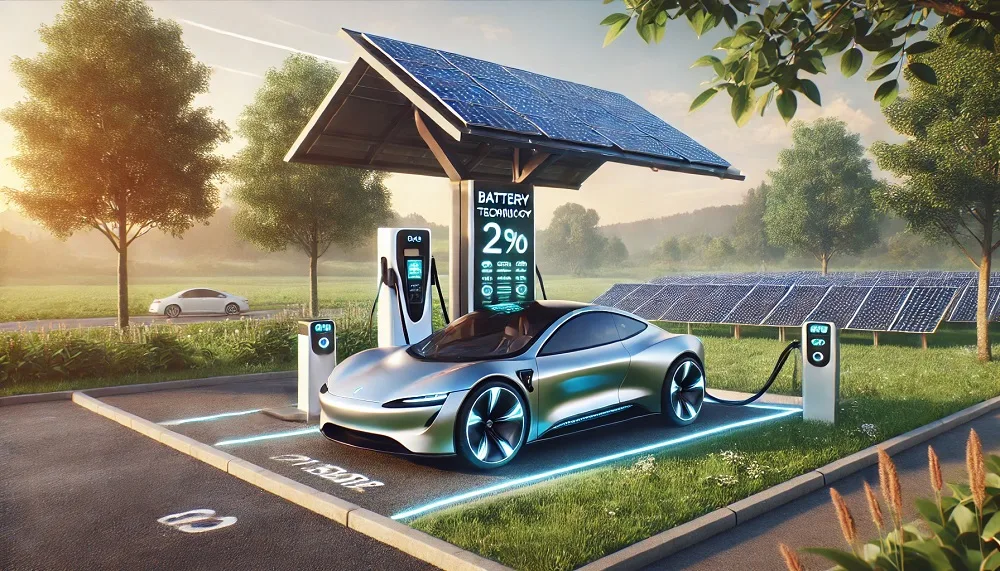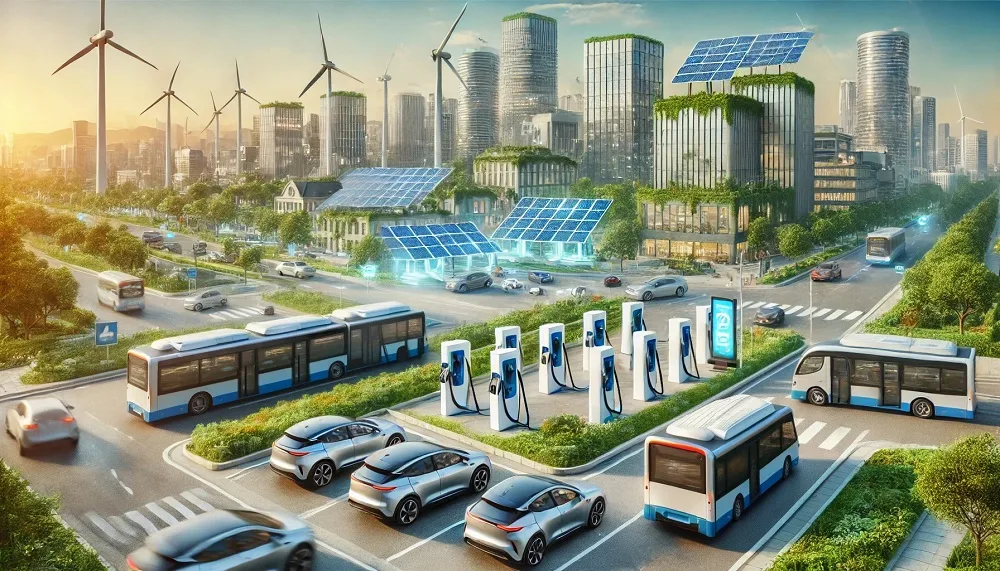Innovations in Electric Transport: Future of Batteries & Charging Stations

Electric transportation is transforming rapidly, driven by advancements in battery technology and the infrastructure of charging stations. The push towards sustainable and eco-friendly solutions is reshaping how vehicles are powered, with electric vehicles (EVs) at the forefront. In this article, we delve into the latest innovations in battery technology and charging stations, exploring how these advancements are making EVs more practical, reliable, and accessible. As we move forward, these changes will play a crucial role in the mass adoption of electric transport, bringing us closer to a greener future.
The Role of Advanced Batteries in the Future of Electric Vehicles
Battery technology has always been the backbone of electric vehicles, and its development is essential for the success of EVs. Recent innovations in battery design and materials are enhancing energy storage, increasing battery life, and improving safety. Researchers and industry experts are focused on alternative battery chemistries, including solid-state and lithium-sulfur batteries, which promise higher energy densities and faster charging times. These improvements could soon allow EVs to travel further on a single charge, alleviating concerns about range limitations. The impact of these new battery technologies will be far-reaching, as they make EVs a more attractive option for both urban and long-distance drivers.
Solid-State Batteries: A Leap Towards Safer and More Efficient Power
Solid-state batteries represent a significant breakthrough in energy storage for EVs. Unlike conventional lithium-ion batteries, which use liquid electrolytes, solid-state batteries employ a solid electrolyte. This change minimizes the risk of overheating and fire, thus enhancing the safety of the vehicle. Moreover, solid-state batteries have a higher energy density, which means they can store more power within the same space, extending the vehicle’s range. Automotive giants and tech startups alike are investing heavily in the development of solid-state batteries, as they are expected to become the standard for electric vehicles in the near future. The adoption of solid-state batteries could mark a turning point in EV technology, making electric transportation more viable and safe.
Fast-Charging Technology: Reducing Charging Time for EV Users
One of the main barriers to widespread EV adoption is the time required to charge the battery. Fast-charging technology is tackling this challenge by significantly reducing charging times. Innovations like ultra-fast chargers and improved charging stations aim to make charging as convenient as filling up a fuel tank. Modern high-powered chargers, capable of delivering 350 kW or more, can bring an EV battery to 80% capacity in under 20 minutes. These advancements are a game-changer, allowing EV owners to save time and making electric vehicles more appealing to a broader audience. As fast-charging technology becomes more accessible, EVs are likely to become a practical choice for even the busiest drivers.
Wireless Charging: A Convenient Alternative for Urban EV Owners
In addition to fast charging, wireless charging solutions are emerging as a convenient option for EV owners, especially in urban areas where space is limited. Wireless charging pads can be installed in garages, driveways, or even parking lots, enabling EVs to charge simply by parking over the pad. This method eliminates the need for cables and manual connections, making it both user-friendly and efficient. Although still in its developmental stages, wireless charging has the potential to become widely adopted, especially in cities where traditional charging infrastructure might be difficult to implement. The integration of wireless charging could further enhance the EV experience, providing a seamless and hassle-free way to keep vehicles charged and ready to go.

The Expansion of Charging Infrastructure and Sustainable Energy Sources
A robust and accessible charging infrastructure is crucial to the success of electric vehicles. Governments, private companies, and tech innovators are working together to expand the network of charging stations, ensuring that EV drivers have access to reliable charging options regardless of their location. This expansion is particularly important for rural and suburban areas, where charging facilities are less common. In addition to increasing the number of charging stations, there is a growing emphasis on powering these stations with renewable energy sources, such as solar and wind power. This move towards sustainable energy aligns with the environmental goals of the electric transport industry, making EV charging greener and less dependent on fossil fuels.
Solar-Powered Charging Stations: Aligning EV Growth with Environmental Goals
Solar-powered charging stations are a promising development in the pursuit of sustainable electric transportation. These stations, equipped with solar panels, generate their own electricity, reducing reliance on the grid and providing a clean energy source for EVs. By incorporating solar canopies and other renewable setups, these stations can power both the vehicles they charge and contribute to the grid, creating a self-sustaining energy loop. In many locations, solar-powered stations are being paired with energy storage systems, allowing them to continue operating even during cloudy days or at night. As more solar-powered charging stations are installed, they will play a key role in reducing the carbon footprint of electric transport, making it an even more eco-friendly choice for consumers.
